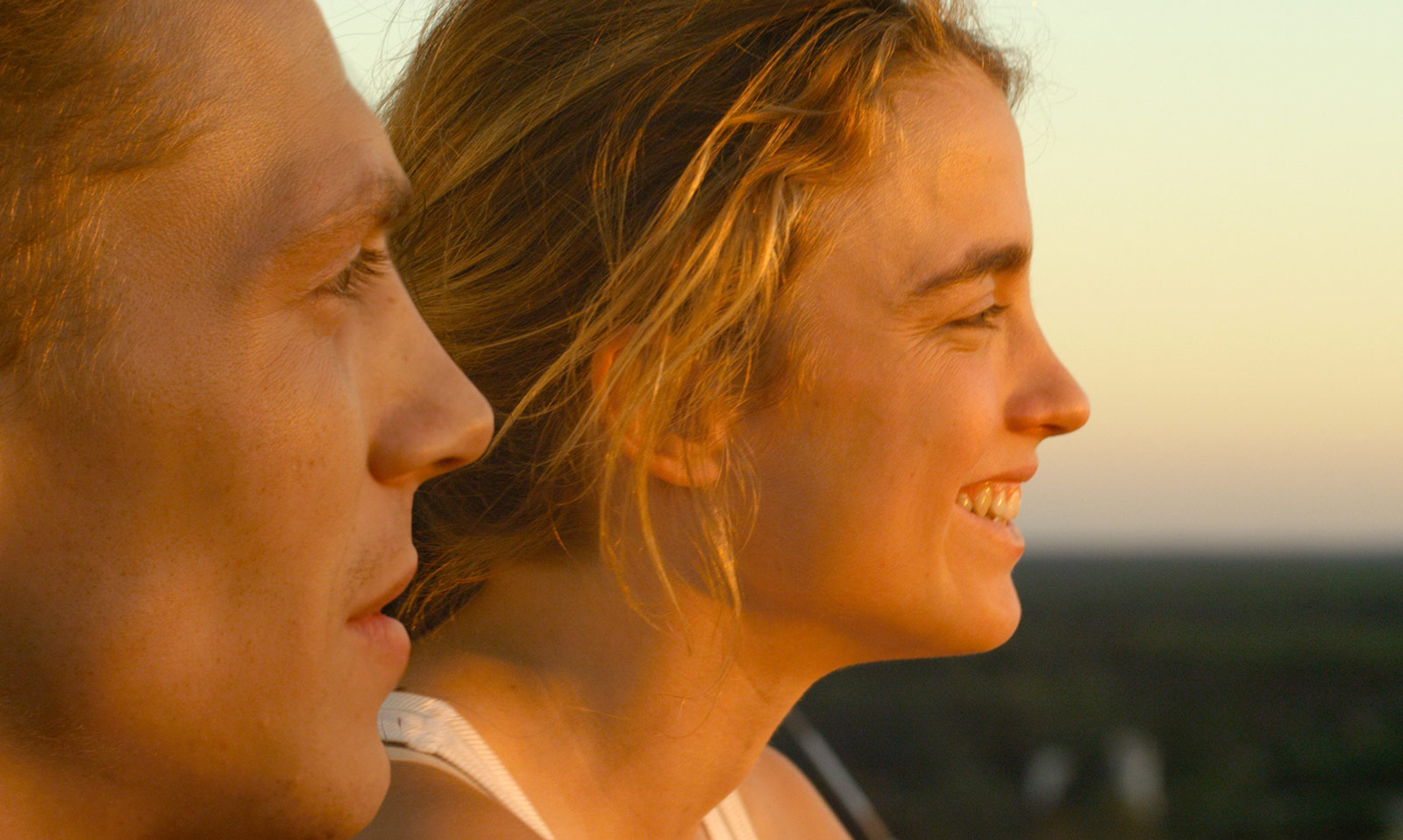
So we’re electing to go with the French title of this film (which translates to “The Fighters”) rather than the mooted English language version—“Love at First Fight”—because we’re quite fond of the English language and also of this little film, and slight as it is, it doesn’t deserve to be lumbered with such an offputting pun. Triple winner of the Cannes Directors’ Fortnight sidebar (which is actually non-competitive but certain independent bodies elect to award prizes, all three of which “Les Combattants” won) we have to say that in a very strong year for that particular section, we were maybe expecting a little more from the film, which beat out the likes of “Whiplash,” “Tu Dors Nicole,” “A Hard Day,” “Cold in July” “National Gallery” and “Girlhood,” among others. But we’ll settle for what we got, which is an immensely amiable, beautifully shot French-language love story featuring one of the best-drawn and least compromised female leads the often (rightly) maligned romantic comedy genre has offered lately. And if nothing else, it provides a solid platform from which first-time feature director Thomas Cailley can launch into more ambitious future projects.

Arnaud (Kévin Azaïs), has just lost his father and faces a summer deciding whether he’ll stay and help his brother out with the family shed-building business, go on holiday with his friends or, least likely, join the army, which is currently engaging in a recruitment drive in his French seaside hometown. Least likely, that is, until he meets Madeleine (Adèle Haenel) an unsmiling, single-minded young woman who is desperate to join up, as a means to learning the skills to survive the societal and environmental collapse she believes is inevitable and just around the corner. Drawn to her despite the unfortunate nature of their meet-cute (they’re paired up for a test fight at an army event in which Arnaud fights dirty to avoid the loss of face of being beaten by a girl), a tentative (and naively platonic) friendship evolves, until, faced with separation when she goes to attend an army training course, Arnaud impulsively joins up too.
In outline it appears like so many other gentle romances, with the boy running the gauntlet to prove himself worthy of the girl, who awards herself to him at the end of his travails like a medal. But Cailley’s film is much more interesting than that, a lot down to the character of Maddy. With the actress Haenel blessed with one of those faces that can be beautiful or plain but is almost always striking, Maddy is an unusually prickly and unresponsive mark for a romcom, and it’s to the film’s credit that we never once see any sort of makeover transformation or “why, miss x you’re gorgeous!” moment to make the reasons for Arnaud’s infatuation more obvious. That also credits Arnaud of course; we can’t help but like him more for his quiet determination to win over this solemn, serious and abrasive young woman, when his friends are all attracted to girls of more immediate charms. Maddy herself is perhaps a little surprised by the constancy of his affection, surprised and suspicious, until an overreaction on her part makes it look like she might lose him, and she has to start to chase him down (literally) instead.

There’s a brush of social commentary here too, if you care to look for it; Arnaud’s inner circle is about to break up due to his best friend fleeing an economically bleak future in France for Canada and while his mother and brother are loving and a little indulgent of him, there is a sense that they are not so very comfortably off that they can afford to let him weigh his future options lightly. Then, of course there’s Maddy’s own grim prognostications for humanity’s imminent demise (shades of the Adrienne Shelley character from “The Unbelievable Truth” here, which is no bad thing). The omnipresent army recruiters and a climactic forest fire all contributing to a vague sense of encroaching doom—the end of carefree youth recast as the End of Times.
But a lot of that exists to counterpoint the prelapsarian idyll they eventually find living in the woods off their wits. And as much as this section is a celebration of survivalism and foraging and fending for oneself, it’s really a very successful metaphor for that lovely feeling of being in love and being the only two inhabitants of a secret world, in which all one really needs is the nearness of the other. The lovely photography (terrific throughout, courtesy of DP David Cailley, the director’s brother) comes into its own here, and in the climactic sequence in an eerily deserted town onto which a rain of choking ash starts to fall from the unconquerable fire nearby.
Heavy on charm and affection for its characters, light on importance (and also, thankfully, on any real pretensions to same) “Les Combattants” is the age-old tale of attractive young people falling for each other, taken out for another spin around the block, with just enough pretty scenery and underplayed chemistry to make it worth tagging along. They’re the rare onscreen couple who really do seem to wholly deserve and “earn” each other, and it’s touchingly progressive that their relationship is established on such equal terms. Which gives rise to an unusual kind of happy ending—one we can believe. They might not “live” as much as “survive” and “happiness” is not a concept to which Maddy is particularly responsive, but something about the odd constancy of their affection gives us the impression that these two are going to survive, and survive happily ever
after. [B]
Browse through all our coverage of the 2014 Cannes Film Festival by clicking here.

